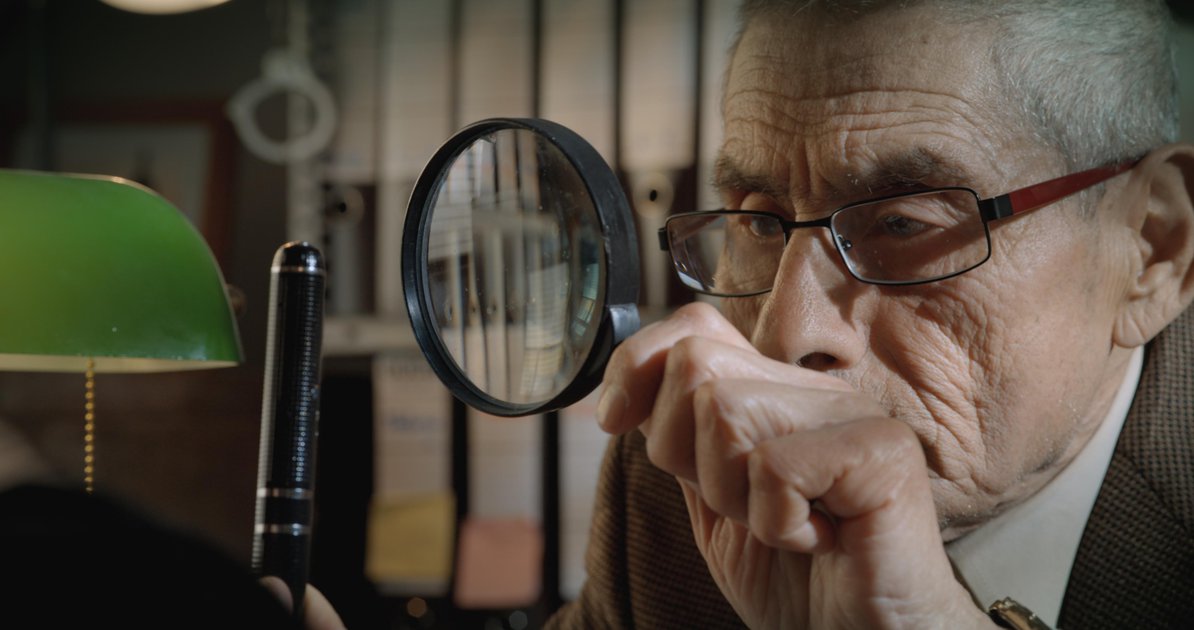The Mole Agent has quite the premise, and it seems intent to follow it at first. Outside of Santiago, Chile in the district of El Monte, a family suspects that their matriarch, Sonia, is a victim of elder abuse at her nursing home. They’ve reached out to a private investigator named Romulo for help, but he can’t get inside the home himself. Instead, he puts a job ad in the paper, and less than five minutes into Maite Alberdi’s documentary, we have our title character: 83-year-old Sergio. The widower and father of three is to check into the facility, observe Sonia, and get information back to Romulo.
Mind you, this is the premise. It’s not the focus. In fact, the film zips through the setup and logistics at such a blink-and-you-miss-it speed that it’s more pretext than anything else, and that’s largely because of how it approaches the content. Yes, it’s a documentary, but to what extent it’s all real isn’t completely clear. Even Alberdi’s camera is so aware of itself that it refuses to feel real at times. Then as The Mole Agent goes on, its intentions clear up. It’s authentic at its core. For Sergio, who’s homebound in just three months, it’s as much of a social caricature. It’s when he gets to know the residents that the journey sheds its skin.
Granted, it’s a balancing act more gratifying in theory than in execution, and much of it has to do with the pacing. Loading its hook, hero, hows, and whys in the first 10 minutes is one thing, but Alberdi also doesn’t give her approach enough room to flesh itself out. Scenes bounce between looking in and looking on. One minute is voyeuristic, the next intimate. It’s distracting, and the technical slant doesn’t have its own arc to contextualize these decisions. Thankfully, it’s by the halfway point that The Mole Agent acknowledges its coyness as pretext, and it strips itself down to its most basic components.
It’s also when it recognizes its own complexities, most of which fall in the form of Sergio himself. The man is lonely, but he still has family. He’s a little out of touch at times, but he’s the only one in on the bit. Most of all, he’s the one going home unscathed when all is said and done, making him a prime audience conduit. The Mole Agent works best when it abandons its more gimmicky methods and leans into the events as they are. Dramatic irony leaks from the cracks for both the hero and the viewers. Alberdi is actually able to blur the line between real and fake instead of shoving it in audiences’ faces like in the first half.
The movie is only 85 minutes excluding credits, so it makes it all the more impressive that it finds its stride when it does. By the end, another line shows itself: When does a sense of belonging harbor guilt? Sergio’s own family is in the distance throughout. The audience knows the movie will end. But those are both myopic and even a little arbitrary, and they don’t apply to the other residents. The Mole Agent may stumble through some of its choices at first, but it sticks the landing by finding a cogitative dissonance and refusing to solve it.
The Mole Agent arrives on September 1.

